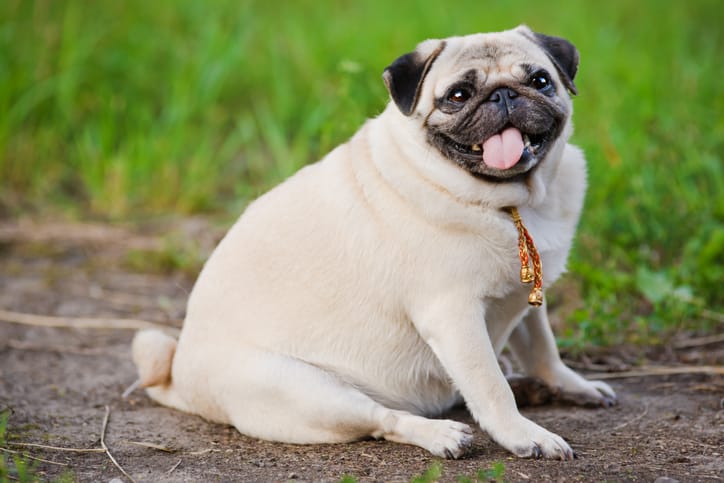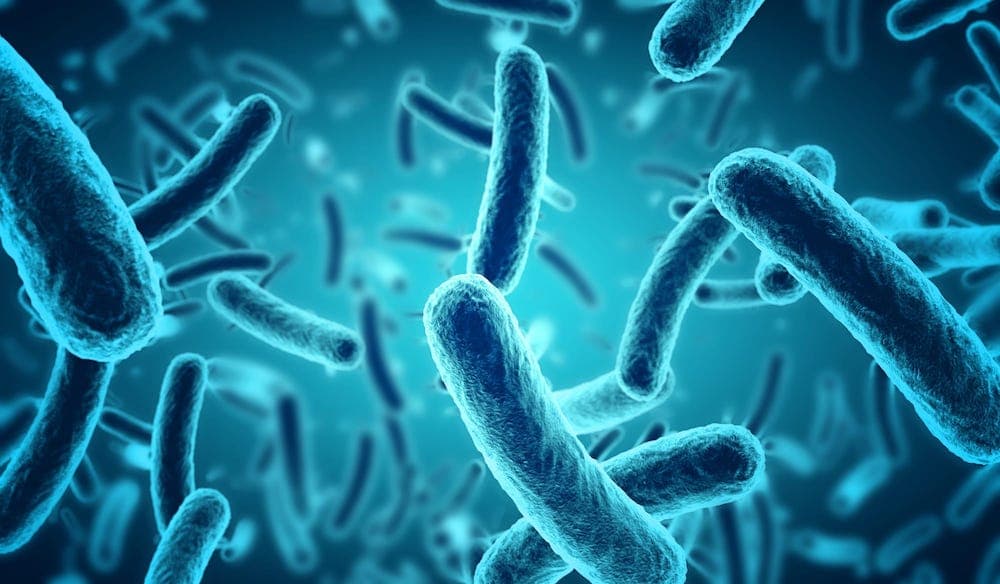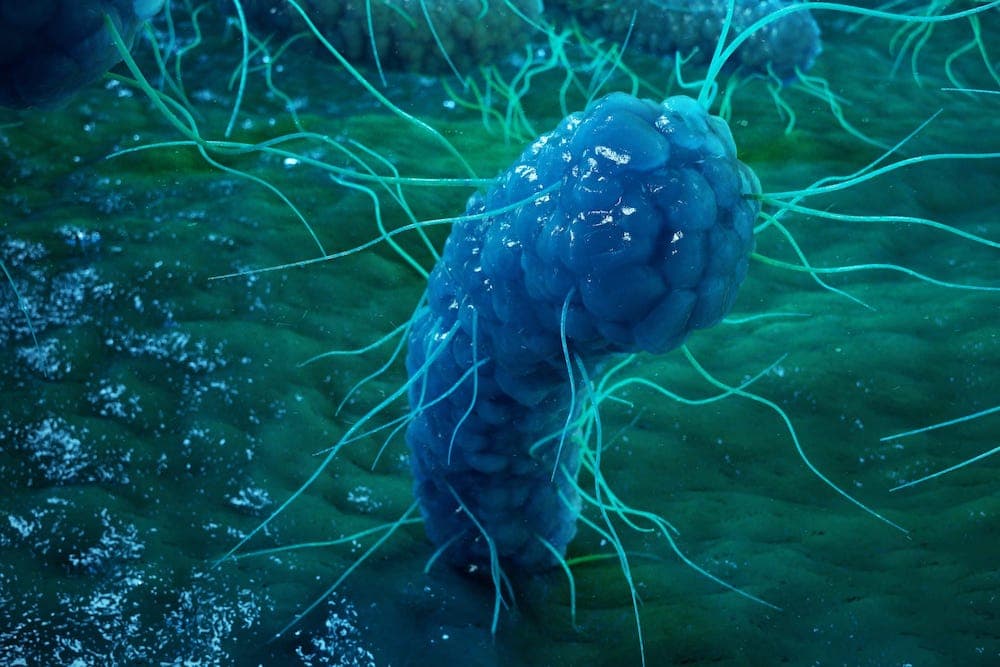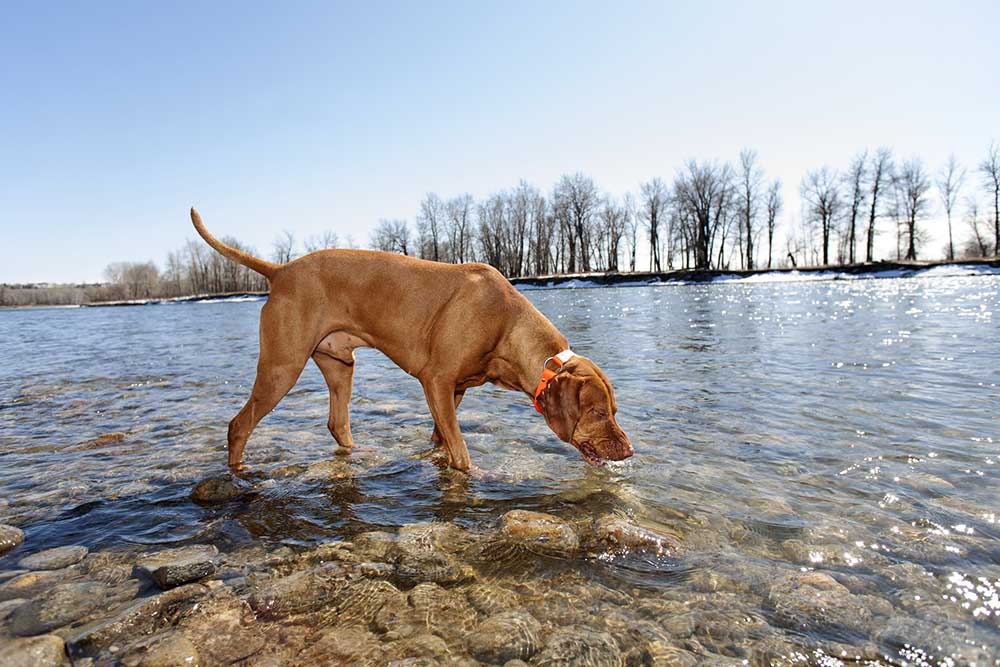Learn : Food & Nutrition
Obesity & The Microbiome
As a pet parent, it’s tempting to toss treats at your dog or cat, especially in exchange for good behavior or a trick. Pets don’t have to worry about loosening their belts when they gain a few extra pounds—but that doesn’t mean the additional weight isn’t affecting their health.
What’s helping the scale creep upward? Is it your pet’s genetics, diet, or activity levels? Or could it be their gut microbes?
According to the Association for Pet Obesity Prevention, an estimated 56 percent of dogs and 60 percent of cats were overweight or obese in 20181. That excess weight could lead to high blood pressure, difficulty breathing, arthritis or a weakened immune system2—and perhaps a shortened life-span for your pet.
Bacteria that live in animal guts—called the microbiome—help their host stay healthy. The gut microbiome has a vital role in digesting essential nutrients and defending against intestinal pathogens3. And imbalances in these microbes are tied to disease, including obesity4.
But what do scientists know about the link between weight and intestinal bacteria? And what can we do about it?
What Do We Know About Obesity?
Scientists still don’t know the exact nature behind what makes our pets (and us) obese5. The conventional wisdom is “calories in, calories out6.” Under this premise, giving your pet more energy than they burn will make them gain weight and feeding them less will help them lose it.
While this is true, obesity is more complex than just excess calories7.
Genetics certainly play a role8. A wide network of genes regulate body weight and scientists are still working to fully understand it in humans and our furry companions. For instance, mice with changes in certain genes are more prone to obesity9. In humans, rare mutations in single genes, such as those responsible for feeling full or hungry and balancing energy, can cause obesity7. These same genes show differences in dogs and cats, but it is still unclear whether they factor into obesity risk7.
Diet is a key element in overweight and obese pets. It affects not only their expanding belly but also the bacteria that live in it10. Researchers are exploring the unclear and complicated relationship between the gut microbiome and obesity. In the next section, we’ll discuss what they’ve figured out so far.
Gut Microbes & Weight
Changing your pet’s diet can alter the bacteria that reside in their gut10 because different species thrive in different conditions. So, it makes sense that feeding your pet a diet high in carbohydrates would benefit distinct species compared to a diet high in protein.
When the types of bacteria that make up the gut microbiome shift, that can change what nutrients are processed and how your pet gets energy. Scientists think that gut bacteria in obese animals are more efficient at extracting and storing energy from food11,12. But are there any differences in the gut microbiome between obese and lean individuals?
Experiments in mice, humans, dogs, and cats have determined that yes, there are differences. However, the jury is still out on the specifics.
For example, when germ-free mice, which do not have any microbial companions, receive the gut microbiome from an obese mouse, they are more likely to become obese12. This suggests that bacteria from the obese individual help the germ-free mouse gain weight. Treatment with antibiotics, which disrupt the microbiome, can also be a risk factor for obesity11. Removing protective gut bacteria as a result of taking antibiotics seems to have a negative effect on body weight.
Part of this might have to do with diversity of the microbiome, as obese people appear to have lower bacterial diversity than their lean counterparts13. Research in dogs has revealed similar findings14,15, although one study in cats did not16. Some studies have also reported that there are fewer Bacteroidetes bacteria than Firmicutes in obese people17. The results are inconsistent among different studies, however, and it’s unclear exactly what this ratio means in the context of body weight. Two reports do suggest that obese dogs appear to have higher levels of Actinobacteria than other bacteria, but the significance of the finding is not yet known. Perhaps having a diverse microbiome helps your pet digest a variety of nutrients and get their energy from multiple sources. Extracting energy from one source could result in an excess of what the body needs, meaning most of it gets stored in fat.
But there are a lot of open questions regarding body weight and the microbiome, particularly the specific bacterial groups—called taxa—involved. Increased understanding will help researchers develop treatments that concentrate on promoting the growth of beneficial bacteria over those associated with obesity. Overweight and obese pets are at an all-time high18 and such studies will be valuable.
Obesity and Probiotics
Probiotics for dogs and cats are formulas that contain living microorganisms, such as bacteria and yeast. These formulas are designed to support gut and overall health. If the gut microbiome is imbalanced, the premise behind treating with a probiotic is to introduce beneficial species that can help bring the bacterial populations in the intestines back to normal. The close relationship between the gut microbiome and weight presents an attractive target for potential probiotic treatment. If researchers uncover which bacteria are out of balance in obesity, then they could develop ways to manipulate the gut microbiome to promote a healthy weight19. Learn more about our probiotics for dogs.
Studies with probiotics and obesity so far in humans and mice have shown promising but sometimes conflicting results19. In some studies, humans and animals who were given probiotics lost more weight than those who weren’t. In others, the researchers didn’t see differences between the two groups. And some analyses reported the opposite effect, where probiotics were associated with weight gain.
Performing additional studies is an important step to figure out why these studies conflict with one another and determine how to ensure effective positive responses. As scientists continue to better understand the microbes living in the gut and to improve probiotic formulas they can make more concrete connections to weight and obesity.
Closing remarks
Researchers continue to study the links between the gut microbiome and body weight. It’s clear that some bacteria in your pet’s gut are tied to how much they weigh, but which those are—and whether they are a symptom or the cause—is still not completely understood19.
If you are concerned about an obese pet, trying a prebiotic that supports bacteria that produce short-chain fatty acids—a byproduct bacteria make when breaking down fiber— could help19. These byproducts are thought to help humans feel full20, which, if also true in pets, might make your dog or cat eat less. A change in diet could also help shift the microbiome toward bacteria that are found in lean individuals21.
References
1. Association for Pet Obesity Prevention. Association for Pet Obesity Prevention Available at: https://petobesityprevention.org/. (Accessed: 24th March 2019)
2. pet. Long-term Effects of Obesity on Pets | petMD. (2010). Available at: https://www.petmd.com/dog/nutrition/evr_multi_long_term_effects_of_obesity_on_pets#. (Accessed: 24th March 2019)
3. Deng, P. & Swanson, K. S. Gut microbiota of humans, dogs and cats: current knowledge and future opportunities and challenges. Br. J. Nutr. 113 Suppl, S6–17 (2015).
4. Ley, R. E. Obesity and the human microbiome. Curr. Opin. Gastroenterol. 26, 5–11 (2010).
5. Loftus, J. P. & Wakshlag, J. J. Canine and feline obesity: a review of pathophysiology, epidemiology, and clinical management. Vet Med (Auckl) 6, 49–60 (2015).
6. The best ways to cut calories from your diet. Mayo Clinic (2018). Available at: https://www.mayoclinic.org/healthy-lifestyle/weight-loss/in-depth/calories/art-20048065. (Accessed: 25th March 2019)
7. Hamper, B. Current Topics in Canine and Feline Obesity. Vet. Clin. North Am. Small Anim. Pract. 46, 785–795 (2016).
8. Day, F. R. & Loos, R. J. F. Developments in obesity genetics in the era of genome-wide association studies. J. Nutrigenet. Nutrigenomics 4, 222–238 (2011).
9. Zhang, Y. et al. Positional cloning of the mouse obese gene and its human homologue. Nature 372, 425–432 (1994).
10. Zangara, M. T. & McDonald, C. How diet and the microbiome shape health or contribute to disease: A mini-review of current models and clinical studies. Exp. Biol. Med. 1535370219826070 (2019).
11. Omer, E. & Atassi, H. The Microbiome That Shapes Us: Can It Cause Obesity? Curr. Gastroenterol. Rep. 19, 59 (2017).
12. Turnbaugh, P. J. et al. An obesity-associated gut microbiome with increased capacity for energy harvest. Nature 444, 1027–1031 (2006).
13. Sze, M. A. & Schloss, P. D. Looking for a Signal in the Noise: Revisiting Obesity and the Microbiome. MBio 7, (2016).
14. Forster, G. M. et al. A Comparative Study of Serum Biochemistry, Metabolome and Microbiome Parameters of Clinically Healthy, Normal Weight, Overweight, and Obese Companion Dogs. Top. Companion Anim. Med. (2018). doi:10.1053/j.tcam.2018.08.003
15. Park, H.-J. et al. Association of obesity with serum leptin, adiponectin, and serotonin and gut microflora in beagle dogs. J. Vet. Intern. Med. 29, 43–50 (2015).
16. Fischer, M. M. et al. Effects of obesity, energy restriction and neutering on the faecal microbiota of cats. Br. J. Nutr. 118, 513–524 (2017).
17. Ley, R. E., Turnbaugh, P. J., Klein, S. & Gordon, J. I. Microbial ecology: human gut microbes associated with obesity. Nature 444, 1022–1023 (2006).
18. Association for Pet Obesity Prevention. Association for Pet Obesity Prevention Available at: https://petobesityprevention.org/. (Accessed: 5th December 2018)
19. Maruvada, P., Leone, V., Kaplan, L. M. & Chang, E. B. The Human Microbiome and Obesity: Moving beyond Associations. Cell Host Microbe 22, 589–599 (2017).
20. Cani, P. D., Joly, E., Horsmans, Y. & Delzenne, N. M. Oligofructose promotes satiety in healthy human: a pilot study. Eur. J. Clin. Nutr. 60, 567–572 (2006).
21. German, A. J., Holden, S. L., Bissot, T., Morris, P. J. & Biourge, V. A high protein high fibre diet improves weight loss in obese dogs. Vet. J. 183, 294–297 (2010).



 Microbiome And Pet Health
Microbiome And Pet Health
 Microbiome Diversity
Microbiome Diversity
 Microbes in the Gut
Microbes in the Gut
 Microbiome in Nutrition
Microbiome in Nutrition
 Giardia & Its Link to the Microbiome
Giardia & Its Link to the Microbiome